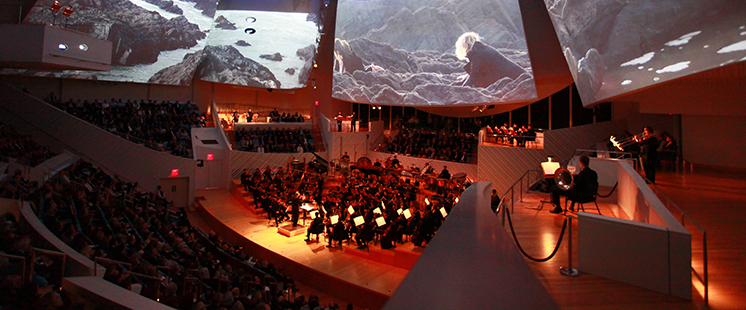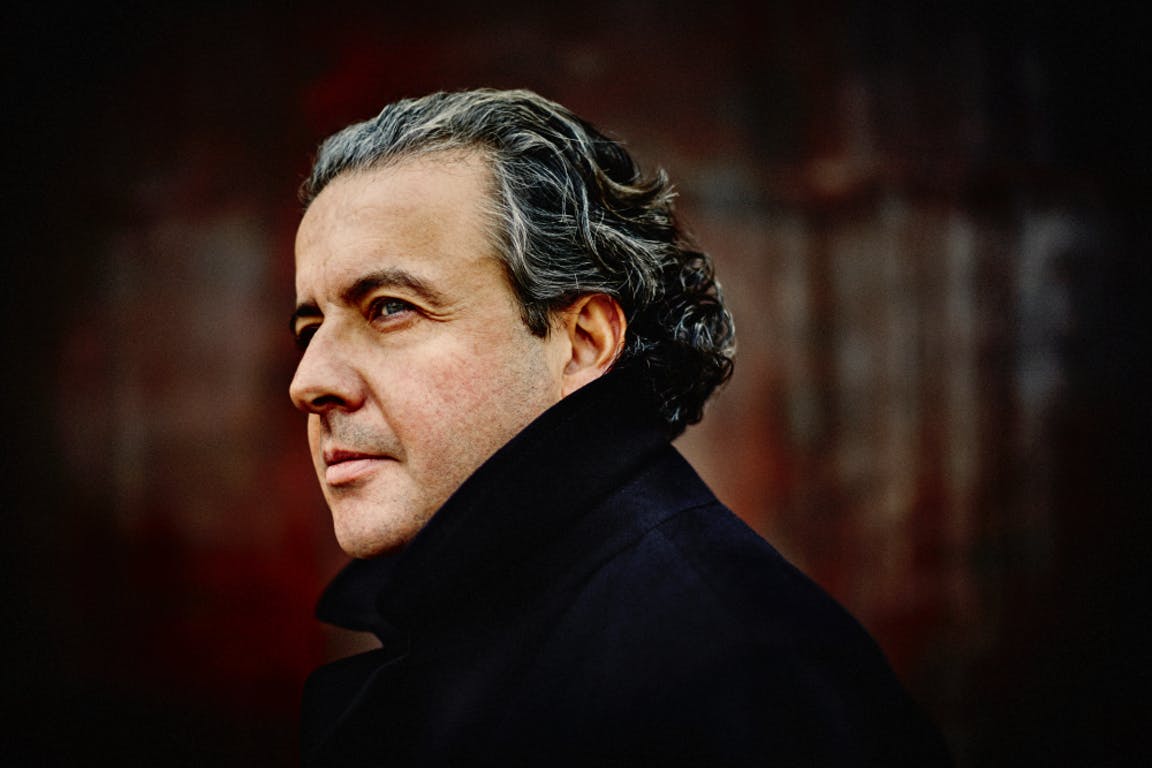
Spanish conductor Juanjo Mena makes his New World Symphony debut
Juanjo Mena is sure to shake up the classical music scene in South Florida when he makes his local debut on April 8 with the New World Symphony. The Basque maestro is considered by many to be the most distinguished Spanish conductor of his generation. Orchestras fight over his services, and he is considered a musician’s musician–the ultimate compliment in the classical music world.
Though he’s been a top conductor for decades (he previously served as artistic director of the Bilbao Symphony Orchestra and principal guest conductor of the Bergen Philharmonic Orchestra), Mena is currently enjoying a particularly pronounced period of professional acclaim. He received the Spanish National Music Prize 2016 and is the chief conductor of the BBC Philharmonic in the U.K. But though he travels the globe performing at the world’s top concert houses, Mena always returns to the comfort and warmth of his hometown, Vitoria, in Basque Country. “I don’t want my children to lose those privileged family surroundings,” he says.
In the following interview, he discusses his influences, formative experiences and offers a taste of what is to come during his two-day stint at New World Center.

You achieved professional recognition and fame in your early 50s.
Now I’m beginning to understand what it is all about, how to make music, how to share my life experiences. Now begin my 25 best years.
Your story is not typical. Perhaps it should be, but it no longer is.
Today we go at an accelerated pace. People “arrive” too quickly, and this career is a long game. It always has been. Hopefully others can enjoy all have the luck I’ve had.
For Picasso, the greatest act of courage was to face a white canvas. How is it to face a score and an orchestra?
Thanks to my experience, I can affirm that the score is god–it’s that to which you must pay the utmost respect. And through that respect is how you must understand the music, rather than thinking of what you can bring to it, which is the wrong approach.
With an orchestra, Picasso’s white canvas is those first 10 minutes. Those are lethal, fundamental. It’s when they catch on whether you are nervous, whether you know the repertoire. It’s when the [conductor-orchestra] relationship and the immediate future are set. Experience gives you the keys of how to handle [those 10 minutes], how to connect with the orchestra. Then what matters is creating music and respecting it so that they can connect with you.
How was your experience with the Bilbao Symphony Orchestra?
I’ll be eternally grateful. Those were very important years. We worked very intensely, there were [seasons of] up to 30 weeks a year. Those were formative, fundamental years for both parties.
And the Bergen Philharmonic Orchestra?
It was another world. It allowed me to put into practice what I had learned with [conductor Sergiu] Celibidache, and begin to create, to discover, to invent and dream–things that had been unfathomable for me up until that moment.
And with the BBC Philharmonic?
I conducted a concert with them, and it was love at first sight. They were looking for a chief conductor, and the musicians chose me. It’s been another learning experience, different. Working with an orchestra in a radio studio requires a lot of preparation and is very demanding. I tripled my repertoire. Sometimes we do three different programs in one week. It’s unbelievably demanding.
And the Berlin Philharmonic?
It arrived at precisely the right time, when perhaps I had something to say.
What do you expect from the New World Symphony and your upcoming performance together?
I’m anxiously awaiting it. I knew the project–[pianist] Javier Perianes has spoken wonders about it, and I can’t wait to get there, feel the energy of that orchestra and lead it down the paths of the music we’ll interpret. I’ve always enjoyed working with young people, and this experience promises to be a luxury and privilege.
Tell us about your teachers: Carmelo Bernaola, Enrique Garcia Asensio and then, the legendary Sergiu “Celi” Celibidache.
They were key in my life. Carmelo arrived in Vitoria when I was a child of 12. He opened the doors of music for me and led me to Garcia Asensio to work on what he believed was the correct technique. Enrique led me to Celibidache and to attend his courses in Mainz. These three teachers imparted on me all the essential aspects of music making. Bernaola regarding harmony, counterpoint, composition and orchestration. A director needs to know orchestration to help the orchestra sound as it should. Garcia Asensio addressed the technical aspects, the language to be mastered. And finally, with Celi, I learned all that is not written in music, that which cannot be talked about or quantified. They are the trio who guide me. One has to learn what each professor teaches, incorporate it and then walk to another space.
What was the great Celi like?
Extremely hard on people. Terrible. I was never part of the group that followed him almost cultishly. In fact, he was very hard on people because he knew this profession is very hard on people. I managed to survive him. He influenced me a lot, and I learned to untether myself from that influence when I understood that neither my instrument nor my knowledge was the same as his. With him I learned that the personality of a director must be rich, rich enough that it allows you to feel naked before the orchestra, without fears and able to communicate what you want to do, something that the musicians catch on to immediately.
And what about opera? According to Celi, it is “not music.”
In opera you must learn to balance priorities. When Celi said that, we should remember what it was that he considered “music.” He said that he had made “music” in one out of 300 concerts, that “in one of them there was music, maybe.” His standards were that high. If it is hard to create his definition of music with a symphony, imagine what is like with an opera, in which you must add staging, scenery, wardrobe, movement. He was referring to the musical purity, the organic center of the music. With Celibidache, I learned how to search for that.
How do you create new audiences?
There is no need to change the product to reach an audience. What we must deliver, without manipulating it, is music. We need to search for other avenues of reaching people that don’t require a change in the repertoire or in the beauty of the music.
What do you do to make the world a better place?
I am sincere, rigorous, just as [maestro Rafael] Frühbeck de Burgos taught me: wake early every day to study, think about the music and not myself. There are conductors who are “video conductors,” who look at themselves as they conduct, and music is something else–it transcends these human impulses. [It’s important to] maintain that commitment, that rigor, that discipline with what you do, without losing your center. That’s what I teach my children.
Juanjo Mena will lead the New World Symphony in a program called “Daphnis and Chloe” on Saturday, April 8, at 8 p.m. and Sunday, April 9 at 2 p.m.
Sebastian Spreng is a visual artist and freelance arts writer. Email him at [email protected] and follow him on Twitter @sebastianspreng.
Recent Content
-
Artsarticle ·
-
Artsarticle ·
-
Artsarticle ·

